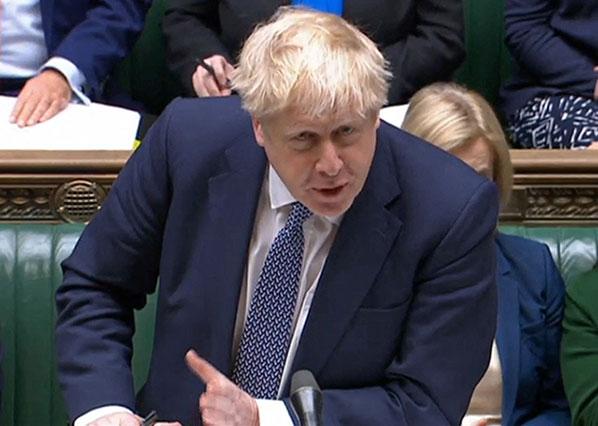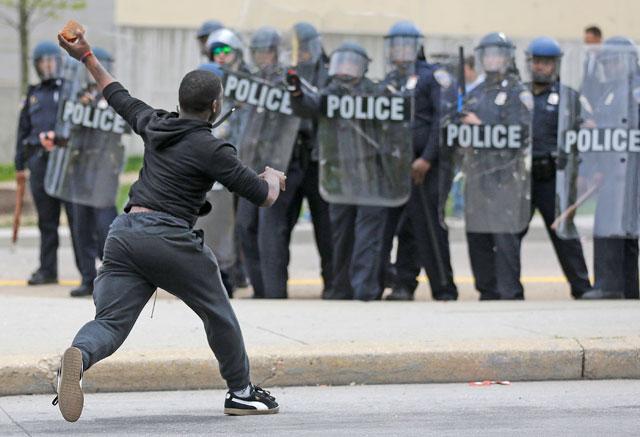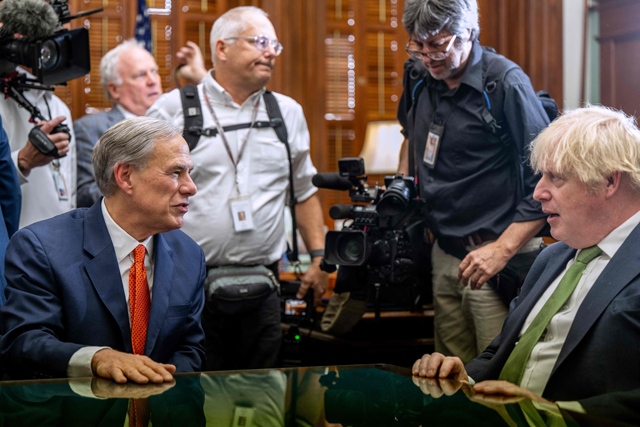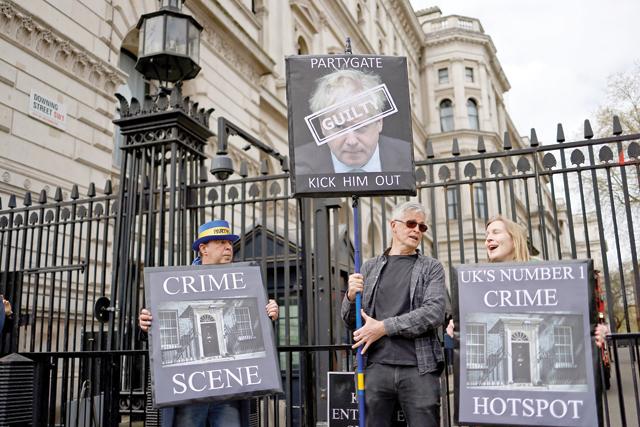You are here
From pub to 'partygate' the UK official behind PM probe
By AFP - Jan 13,2022 - Last updated at Jan 13,2022

A video grab from footage broadcast by the UK Parliament's Parliamentary Recording Unit (PRU) shows British Prime Minister Boris Johnson speaking during Prime Minister's Questions (PMQs), in the House of Commons in London on Wednesday (AFP photo)
LONDON — Sue Gray, the top UK civil servant investigating claims of lockdown-breaching parties in Downing Street, is a former pub landlord once described as the person who really "runs" Britain.
Prime Minister Boris Johnson's political survival could now depend on Gray, who ran a Northern Ireland pub at the height of violence there, and who is rapidly becoming a household name in Britain and the subject of countless social media memes. Johnson apologised Wednesday for attending a boozy May 2020 party in the garden of his Downing Street residence and workplace, in apparent breach of Covid lockdown rules that prevented people visiting dying loved ones or attending funerals. He is facing calls to quit over the "partygate" scandal, even from within his own Conservative party. But the embattled British leader has repeatedly urged critics to wait for Gray's report. Gray, in her 60s, has worked in the civil service for decades, but took a career break in the 1980s, buying a pub with her husband, country and western singer Bill Conlon, in Northern Ireland at the height of violence over British rule in the province. There she reputedly ruled supreme over the potentially fractious Cove Bar in the border city of Newry in an area then known as "bandit country".
She was remembered as a "good landlady" who "would have known not to open her mouth" about her work for the British government, a customer told The Sunday Times.
'Truth as it is'
Today she is the top civil servant in the Cabinet Office -- charged with supporting prime ministers and ensuring the effective running of government. She has led several internal investigations in her previous role as its head of propriety and ethics. Once described by a former cabinet minister as the person who really "runs" Britain, she is perceived as an unimpeachable civil servant and the ideal figure to conduct a probe with highly political implications.
She was shoehorned into heading the inquiry after Britain's top civil servant, Simon Case, stepped down from leading it.
Case recused himself after it emerged that he had held rule-breaking drinks in his own office during the run-up to Christmas in 2020.
London police are also in contact with the government about potential Covid breaches, which could see a criminal probe launched and Gray's inquiry superseded.
"If we are going to have a civil servant doing it, Sue Gray is the best person," former senior official David Normington told BBC Radio this week.
"She's a feisty senior civil servant and I think will tell us the truth as it is," said Alistair Graham, who worked with her when he was chairman of the Committee on Standards in Public Life. Gray has built a reputation for competence and integrity and amassing considerable authority, Westminster insiders say.
"Unless she agrees, things just don't happen," Oliver Letwin, ex-prime minister David Cameron's policy chief, reportedly told his Liberal Democrat ministerial colleague David Laws in 2010. "Cabinet reshuffles, departmental reorganisations, the whole lot -- it's all down to Sue Gray," Laws recounted Letwin saying in his 2016 memoirs.
'Uncomfortable' - Gray has proved her mettle handling contentious political probes into alleged wrongdoing by Tory MPs.
In 2017, her report into Conservative minister Damian Green found he had lied about the presence of pornographic images on his parliamentary computer and prompted then-prime minister Theresa May to fire her close Cabinet ally.
Gray earlier investigated claims that Andrew Mitchell, Tory chief whip at the time, insulted police officers in Downing Street with the class-charged derogatory term "pleb".
However, commentators note the limits on Gray's current investigation, which could mean her report underwhelms in the current fevered atmosphere. It is primarily a fact-finding exercise and unlikely to apportion blame.
Catherine Haddon, of the Institute for Government think tank, argued this week it was "very uncomfortable" for the civil service to conduct a probe into the prime minister's behaviour. "If the report fails to satisfy the court of public opinion and is seen to obfuscate or play down matters or proves inaccurate, Gray -- and the civil service -- will face criticism," she added. "Whatever Gray concludes, partygate does not end with her report."
Related Articles
Armed National Guard troopers in fatigues deployed in force in Baltimore on Tuesday after a riot triggered by anger over the death of a young African American while in police custody.
LONDON — Former UK prime minister Boris Johnson is facing further potential police investigations into the "Partygate" scandal, after a gove
LONDON — Boris Johnson has survived the initial fallout from becoming the first British prime minister to be fined for breaking the law, but



















